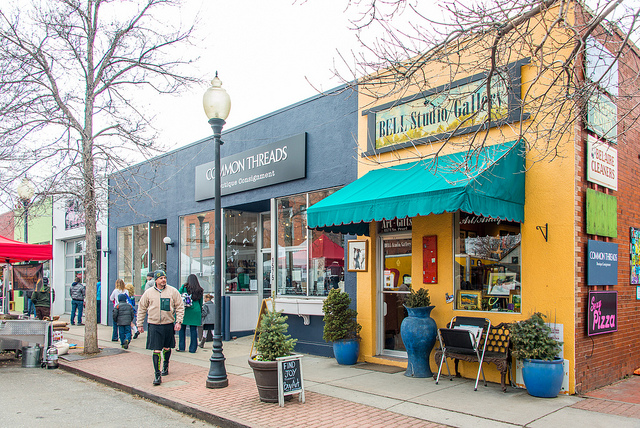City Council Members Choose Storage for Cars Over Housing for People

In a growing city where homes are becoming increasingly unaffordable, elected officials should be trying to maximize housing for people, not storage for cars. But some members of the City Council want to do exactly the opposite.
The City Council’s Neighborhood and Planning Commission voted 5-0 Wednesday to press pause on a zoning law that allows developers to build parking-free homes on small plots in compact, walkable neighborhoods. Council Members Jolon Clark, Mary Beth Susman, Rafael Espinoza, Kendra Black, and Wayne New voted for the moratorium. The measure will go before the full City Council on August 22.
If it passes, builders will be compelled to construct parking where they weren’t before, increasing costs and hampering the development of housing. That would go directly against the City Council’s top two stated priorities: creating a less car-oriented city and making a dent in the affordable housing shortage.
The rule exempting some lots from parking requirements has been around 10 years. Planners established the zoning in 2005 “to provide flexibility for small lots and encourage a reuse of existing building in limited areas of the city,” according to City Council documents.
So far only one qualifying development has taken the city up on going car-free, according to the Denver Post. But that was before the building boom. Already, six more car-free projects are in the pipeline. This type of development will lead to lower housing costs and less traffic — exactly what Denver should be encouraging as it grows.

“One thing that strikes me is this great idea about eliminating parking requirements on small lots,” said Dan Bertolet, a senior researcher at Sightline Institute, a Seattle-based think tank that specializes in sustainability. “That’s something Seattle’s never done, so you guys are ahead of us.”
At least for now. Council members seem more concerned with where personal automobiles will be stored than where people will sleep. The moratorium is supposed to give the council time to amend the zoning law in a way that appeases car-first neighbors.
Post reporter Jon Murray highlights a proposal on South Pearl Street, one of the city’s most walkable commercial and residential districts. It’s also a few blocks from the Louisiana-Pearl light rail station. A developer wants to build 16 homes on a plot with 50 feet worth of on-street parking in front of it, plus six off-street spaces. “That is something that will dramatically change the feel of that community,” Clark said during the Council meeting.
Meanwhile, in City Park West, Pando Holdings wants to build 108 studio apartments without off-street parking spaces. Rent would cost $1,000 a month — $371 less than the average rent in the metro area. “Our idea was to provide a more affordable option for renters that don’t rely on a car to get around,” Kiely Wilson told the Post. Wilson said his company did their research, and will market the apartments to people who live a car-free lifestyle.
Unless the City Council rejects the moratorium, this kind of affordable, walkable development will cease to be allowed — all because some people are obsessed with parking.
That obsession has a very real human toll. It costs builders about $26,000 to construct each underground parking space and $18,000 for each above ground stall in Denver, according to a report by parking policy expert Donald Shoup. That cost gets passed along to tenants.
In addition, Bertolet says that parking requirements move the whole market toward less affordable types of housing. If projects like the City Park West apartments can’t be built, for instance, developers will react by building bigger homes for fewer people, and charging more per unit. Land consumed by required parking lots and garages will displace land where people could have lived.
The average non-city-planner may not get the ins and outs of parking policy, but City Council members have to. If they don’t, they’ll be condemning Denver residents to higher housing costs and more traffic on the streets.


